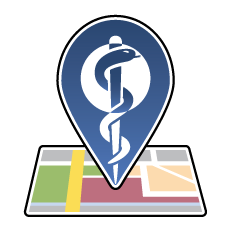Social: #AlcoholAwarenessMonth
Twitter:
Facebook:
Instagram:
Website: https://www.alcohol.org/awareness-month/
Alcohol Awareness Month is a public health program organized by the National Council on Alcoholism and Drug Dependence as a way of increasing outreach and education regarding the dangers of alcoholism and issues related to alcohol. The program was started in April 1987 with the intention of targeting college-aged students who might be drinking too much as part of their newfound freedom. It has since become a national movement to draw more attention to the causes and effects of alcoholism as well as how to help families and communities deal with drinking problems.
The Importance of Alcohol Awareness Month
A big part of the work of Alcohol Awareness Month is to point out the stigma that still surrounds alcoholism and substance abuse in general. For many, denial is a common trait among those struggling with alcoholism or alcohol abuse.1 They often underestimate the amount they drink, the duration of their drinking problem, the impact it has had on their life, or overestimate their ability to control their drinking or to quit.1 Denial is also common among friends and family members who are uncomfortable acknowledging the gravity and reality of the situation.
With this in mind, Alcohol Awareness Month gives public health bodies, community centers, and treatment facilities the chance to increase their efforts to reach people who may not fully appreciate the dangers of unhealthy alcohol consumption.
These organizations—many of which are part of National Council on Alcoholism and Drug Dependence’s (NCADD) National Network of Affiliates—launch campaigns on social and traditional media during the month of April to draw attention to the causes of alcoholism, the signs and effects of the condition, how to talk to a loved one about a drinking problem, and how to find treatment options.
These campaigns can include advertising, especially in areas that are prone to abusive alcohol consumption like college campuses. According to the 2018 National Survey on Drug Use and Health (NSDUH), 54.9% of full-time college ages 18 to 22 students drank alcohol in the past month among, 36.9% engaged in binge drinking in the past month, and 9.65% engaged in heavy alcohol use.2
Programs like Alcohol Awareness Month exist to ensure that families and communities have the resources, information, and options available to control the crisis of alcoholism.
What to Expect During Alcohol Awareness Month
This year, the National Institute on Drug Abuse (NIDA) and the National Institute on Alcohol Abuse and Alcoholism (NIAAA) will be hosting the 10th annual National Drug and Alcohol Facts Week (NDAFW) from March 30 through April 5, 2020. Full of educational events across the week, NDAFW will focus on educating teens and families on the myths of substance abuse and addiction with the help on industry experts.
In 2017, Frances M. Harding, the Director of the Center for Substance Abuse Prevention at the Substance Abuse and Mental Health Services Administration, singled out the alarming rates of alcohol consumption in colleges and universities as an example of why Alcohol Awareness Month is important. Binge drinking is often thought of as a rite of passage, and many fraternities and sororities use alcohol in hazing rituals that often turn deadly. College administrations and state governments are turning to “creative prevention strategies” to address the epidemic, and Alcohol Awareness Month gives them the platform to spread the message.
As a subsidiary of American Addiction Centers, a nationwide provider of treatment facilities, Alcohol.org will also be showcasing the cost alcoholism and addiction can have on your life throughout the entire month of April. We’ll be helping give a real glimpse into how it can affect your mental and physical health, financial well-being, relationships (family and friends), and what it could mean for your current and future career.
Getting Help For Alcohol Addiction
If you feel you or a loved one may be struggling with alcoholism, don’t worry, you’re not alone. We understand how overwhelming it can be to consider seeking help for addiction and we’re here to take that burden off your shoulders. Our admissions navigators are available 24/7 to discuss your alcohol addiction treatment options and answer any questions you may have about the process. Call us today at 1-866-233-1131 or get a text to take the first step toward recovery and a healthier life.
